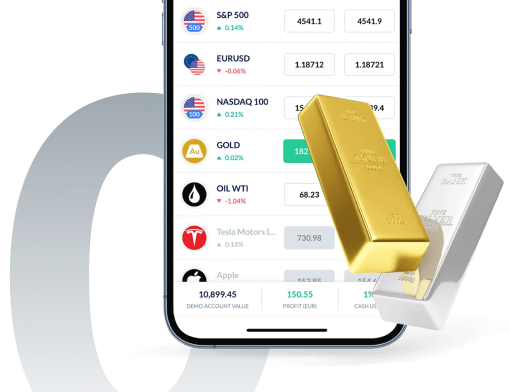

Curious about the opening and closing times of the world’s leading stock exchanges? Each stock market has designated hours for trading activities, and these can vary by country and exchange. Below, you’ll find the standard operating hours for major stock exchanges, as well as details on trading beyond regular hours and during holidays.
Regular trading hours for major stock exchanges
Stock exchanges operate on a set schedule, and trading sessions typically last several hours per day. These hours are influenced by the location of the exchange and its time zone. Here’s a summary of the trading hours for key global exchanges, with all times shown in GMT:
| Exchange | Trading Hours (GMT) | Daily Break |
|---|---|---|
| New York Stock Exchange (NYSE) | Monday 14:30 - Friday 21:00 | 21:00 - 14:30 |
| NASDAQ | Monday 14:30 - Friday 21:00 | 21:00 - 14:30 |
| Toronto Stock Exchange | Monday 14:30 - Friday 21:00 | 21:00 - 14:30 |
| Frankfurt Stock Exchange | Monday 08:00 - Friday 16:30 | 15:30 - 07:00 |
| Paris Stock Exchange | Monday 08:00 - Friday 16:30 | 15:30 - 07:00 |
| Milan Stock Exchange | Monday 08:00 - Friday 16:25 | 16:25 - 08:00 |
| Madrid Stock Exchange | Monday 08:00 - Friday 16:30 | 15:30 - 07:00 |
| Oslo Stock Exchange | Monday 08:00 - Friday 15:20 | 15:20 - 08:00 |
| Stockholm Stock Exchange | Monday 08:00 - Friday 16:25 | 16:25 - 08:00 |
| Brussels Stock Exchange | Monday 08:00 - Friday 16:30 | 16:30 - 08:00 |
| Helsinki Stock Exchange | Monday 08:00 - Friday 16:25 | 16:25 - 08:00 |
| Copenhagen Stock Exchange | Monday 08:00 - Friday 15:55 | 15:55 - 08:00 |
| Mexican Stock Exchange | Monday 14:30 - Friday 21:00 | 21:00 - 14:30 |
| Hong Kong Stock Exchange | Monday 01:30 - Friday 08:00 | 04:00 - 05:00 |
Trade Demo: Real trading conditions with zero risk
Trade risk-free on Skilling’s award winning platforms with a 10k* demo account.

What is a stock exchange?
A stock exchange is a marketplace where shares of companies like Tesla (TSLA), Apple (AAPL), and Alibaba (BABA) are bought and sold. Essentially, it’s where investors trade portions of ownership in businesses, known as stocks. When you buy a share, you own a small fraction of that company.
The price of stocks fluctuates based on a variety of factors, including company performance, economic conditions, and investor sentiment. Stock exchanges not only provide a platform for trading but also enable companies to raise capital by selling shares to the public.
Major stock exchanges like the New York Stock Exchange (NYSE) and the NASDAQ are central to global financial markets. They also offer a wide array of services beyond trading, including market data, research tools, and derivative products like futures and options, which allow for speculation on future price changes.
Trading beyond regular hours
Stock markets aren’t limited to their standard trading hours. Pre-market and after-hours sessions allow traders to operate outside the normal schedule, providing extra opportunities. However, these periods come with specific challenges, including lower liquidity and increased price volatility, which makes it essential for traders to have well-planned strategies.

Holiday trading schedules
Stock exchanges also observe special schedules during holidays, which can disrupt normal trading hours. Keeping track of holiday closures is crucial for traders who want to plan their activities and avoid unexpected market downtime. Different markets may have different holidays, so it's important to stay updated on the schedules of the exchanges you are interested in.
Trade Demo: Real trading conditions with zero risk
Trade risk-free on Skilling’s award winning platforms with a 10k* demo account.

FAQs
1. What’s the difference between a stock exchange and the stock market?
A stock exchange is a physical or electronic venue where securities, including stocks and bonds, are bought and sold. The stock market, on the other hand, refers to the broader collection of all stock exchanges and trading activities globally, including those that occur over-the-counter (OTC) and via electronic platforms.
2. What are the usual trading hours for stock exchanges?
Stock exchanges typically operate Monday through Friday, with exceptions for holidays. Standard trading hours generally start around 9:30 AM and end by 4:00 PM in the local time of each market. Many exchanges also offer pre-market and after-hours trading.
3. Can I trade when the stock market is closed?
While you can't trade during regular market closures, many brokers offer after-hours trading. This allows you to place orders for when the market reopens, though these trades often come with additional risks like low liquidity and higher price volatility.
Capitalise on volatility in share markets
Take a position on moving share prices. Never miss an opportunity.

4. Why isn’t the stock market open 24/7?
Stock markets have set hours to allow time for other financial processes, such as settlement of trades and system maintenance. Operating limited hours also gives traders time to rest and evaluate their positions, helping maintain market efficiency.
5. Is the stock market open on weekends?
No, stock exchanges are typically closed on weekends. Regular trading occurs from Monday to Friday, though some electronic trading systems may offer limited activities outside of these hours.
6. What are the trading hours for European stock markets?
The hours for European exchanges vary by country. For example, the London Stock Exchange typically opens at 8:00 AM local time, while the Euronext Paris and Frankfurt Stock Exchange start at 9:00 AM. It's important to be aware of any changes in schedules during holidays.
7. How do time zones impact stock trading?
Time zone differences can lead to overlap or gaps in trading across global exchanges. This can influence liquidity and volatility, depending on how the markets interact during these hours.
8. Can I trade stocks at any time using electronic platforms?
Although electronic trading platforms extend market hours, true 24-hour trading is generally limited to certain instruments and markets, such as Forex or cryptocurrencies. Stock trading on these platforms still adheres to the availability of pre-market and after-hours sessions.
9. What should I be aware of when trading pre-market or after-hours?
During these periods, liquidity tends to be lower, and price swings can be more volatile. Traders need to implement careful risk management and be prepared for potentially wider spreads in pricing.












